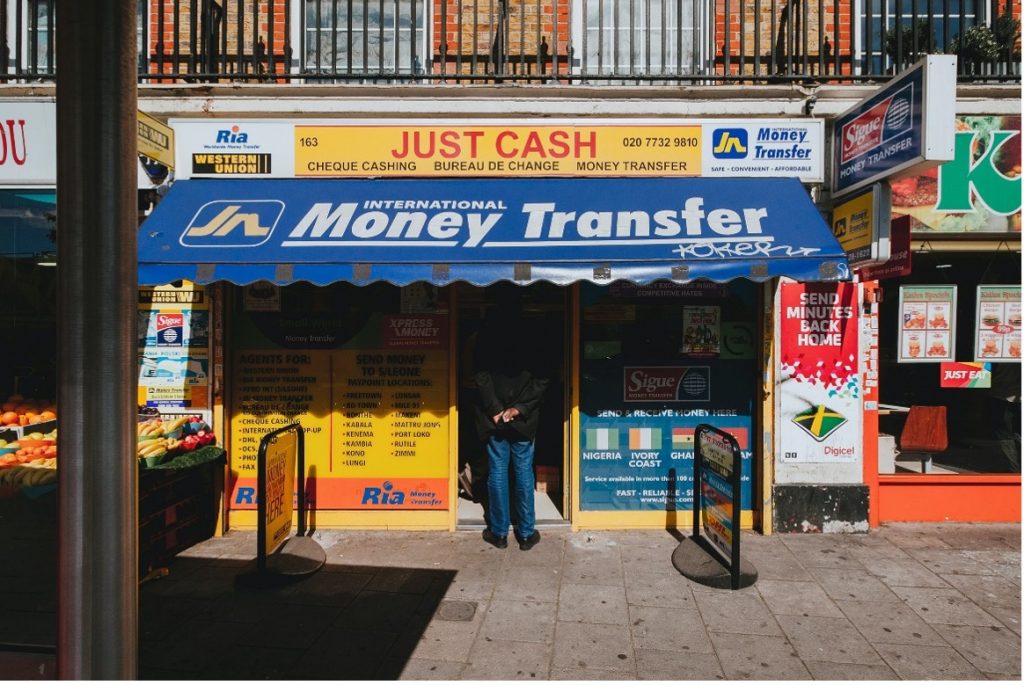By Jordan Jiles, Staff Writer

On Monday, October 3, the United States Supreme Court’s 2022-2023 term began, and one of the first cases it heard was a multi-million-dollar dispute involving over 30 states. The case, known as Delaware v. Pennsylvania and Wisconsin, centers around the categorization of financial instruments issued by MoneyGram, a Delaware corporation and the world’s second-largest money-transfer company.[1]
MoneyGram has a practice of offering their customers financial instruments that they call “official checks” from MoneyGram locations for the price of an official bank check plus a transaction fee.[2] Customers pay the face value of the check to the selling bank, and in return the bank sends the funds to MoneyGram. After the customer gives the check to a recipient, that person is then expected to cash the check at a bank, at which point MoneyGram reimburses the customer.[3] When these checks go uncashed, the funds held by MoneyGram are considered to be unclaimed property which may be claimed by states under the legal principle of escheatment.[4]
The state of Delaware has made millions of dollars from these unclaimed funds, which accounted for 8% of the State’s revenue last year.[5] The State asserts the right to maintain ownership of these funds based on a 1965 Supreme Court case where it was held that such funds “be subject to escheat by the State of corporate domicile.”[6] Once the MoneyGram instruments are dormant for a statutory period, the escheatment process takes place and the money is absorbed into the State’s Comptroller’s Office.[7]
Pennsylvania, Wisconsin, and 28 other states joined a suit against Delaware, asserting that Delaware’s practice of escheating the financial products violates the Disposition of Abandoned Money Orders and Travelers Checks Act of 1974. That law states that financial products “payable on a money order, traveler’s check, or other similar written instrument (other than a third-party bank check)” can be claimed by the state where the instrument was originally purchased.[8]
Attorneys representing Delaware argued that MoneyGram “official checks” do not classify as financial products within the scope of the 1974 Act, maintaining that Congress did not intend for products like the MoneyGram instruments to be impacted by the legislation.[9] They also contend that the instruments are more similar to third party bank checks, which are categorically excluded from the Act.[10] In response, Delaware attorney Neal Katyal stated that, by embracing the other State’s interpretation, the Court would be creating “a disaster” that would be “incredibly damaging and destabilizing to the financial sector.”[11]
As a dispute between states, Delaware v. Pennsylvania and Wisconsin is one of very few cases that has original jurisdiction in the Supreme Court.[12] As is customary in these instances, the Supreme Court appointed a special master, 2nd Circuit Senior Judge Pierre Leval, to issue recommendations to the Court regarding the case.[13] Leval found in favor of the 30 states, believing their argument that MoneyGram checks are subject to the 1974 statute to be “far more persuasive” than that of the Delaware attorneys.[14] Leval also urged the Court to refrain from firmly defining the term “money order,” as doing so could, “have unforeseen consequences for other types of financial products not at issue in the case.”[15] The Court is expected to deliberate on these issues and return a ruling to the parties by the end of the term.
[1] https://www.scotusblog.com/2022/10/in-a-dispute-over-uncashed-moneygram-checks-delaware-faces-the-ire-of-30-other-states/; see also https://www.jurist.org/news/2022/10/us-supreme-court-hears-arguments-in-150m-unclaimed-property-dispute-between-states/
[2] https://www.moneygram.com/mgo/us/en/m/money-orders
[3] https://www.scotusblog.com/2022/10/in-a-dispute-over-uncashed-moneygram-checks-delaware-faces-the-ire-of-30-other-states/
[4] Id.
[5] Id.
[6] Texas v. New Jersey, 379 U.S. 674 (1965)
[7] https://www.titleresearch.com/news/what-is-escheatment#:~:text=Escheatment%20is%20the%20process%20by,a%20wealth%20of%20unclaimed%20assets.
[8] https://www.scotusblog.com/2022/10/in-a-dispute-over-uncashed-moneygram-checks-delaware-faces-the-ire-of-30-other-states/
[9] https://www.jurist.org/news/2022/10/us-supreme-court-hears-arguments-in-150m-unclaimed-property-dispute-between-states/
[10] Id.
[11] https://news.bloombergtax.com/daily-tax-report-state/justices-skeptical-of-delawares-claim-to-moneygram-millions
[12] https://www.scotusblog.com/2022/10/in-a-dispute-over-uncashed-moneygram-checks-delaware-faces-the-ire-of-30-other-states/
[13] Id.
[14] Id.
[15] Id.